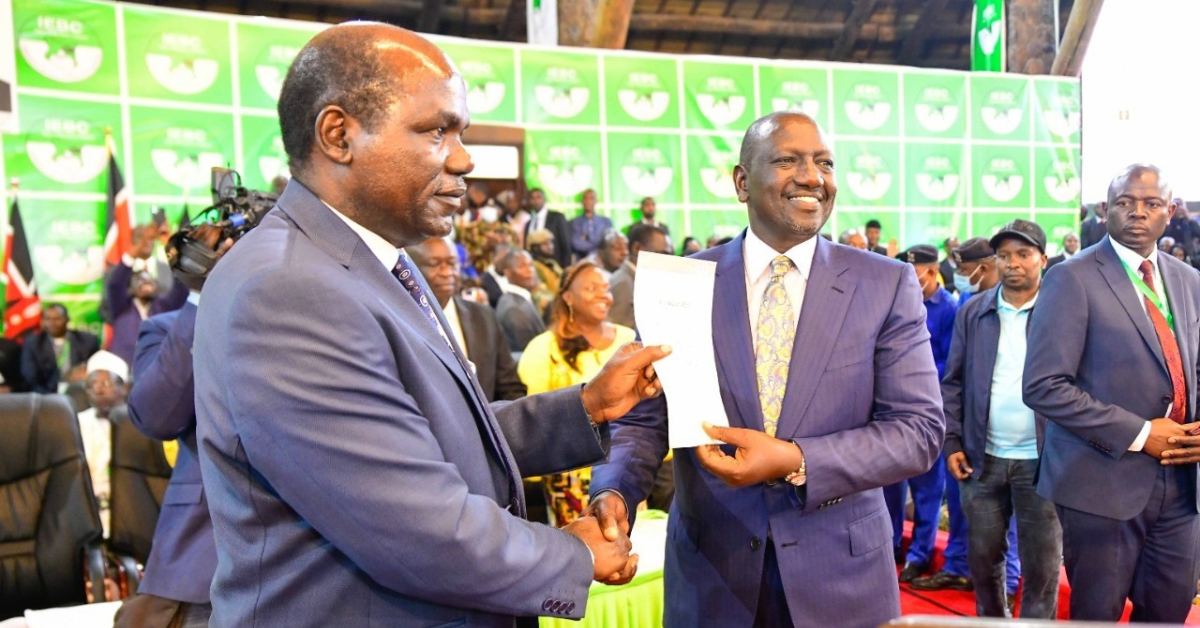Shs! Keep your voice down. Do not let the contestants know about this letter until after the Presidential Debate, scheduled for Monday February 11, 2013. The reflections and questions in this letter are only meant for Julie Gichuru and Linus Kakai, the moderators of the debate. We know the contestants are hunkered down right now, cramming all manner of facts and figures and sharpening their policy positions, ready to recite them back during the debate.
Dear Julie and Linus,
I write in regard to the Monday presidential debate in which you have the privilege to moderate. I know it is highly tempting to focus most of your questions on the contestant’s knowledge of the challenges confronting Kenya. I know you will want to know their plans for improving the economy, tackling insecurity and corruption, forging national cohesion, and such. These would be policy questions aimed at probing deeper the contestant’s party manifestos.
I do not deny the importance of such questions. We all want to know for instance why the much vaunted rising tide of economic fortune is not lifting all boats. It would certainly be useful also to know how the new president intends to finance an expensive devolved system of government at a time when Kenya Revenue Authority has been missing its targets, while domestic borrowing is inching towards unsustainable territory.
Such questions are important. But the point is these types of questions are standard fare and they will elicit vanilla-type answers. They tell us very little about the character and skill of the candidates. Nor do they go to the heart of the matter- namely leadership ethos and style. The presidency is still a powerful office with the authority and capacity to shape the nation’s destiny by its actions, inactions, messages and images.
Julie, Linus
If it is not too late, would like to urge you to be a little innovative in both method and content. Instead of the typical verbal-question, verbal-answer format (a la USA presidential debates), you could mix things up. For instance, you could ask a question and have all the debaters write a short answer on a piece of paper; then have them read it out aloud. You could then question them on their answer, allowing them to explain. A variation of this would be to ask each candidate a different question but on the same general theme. The advantage of this is obvious: it eliminates or minimizes the ‘the trigger and refine effect,’ a phenomenon in debates where one debater’s answer is used by others to improve their own responses.
There are three categories of questions that we should ask all the six candidates. These are outward bound, inward bound and interface questions. You see, we consciously and unconsciously inhabit three ‘universes’. There is the ‘universe’ of how we view and relate to other people. This is the outward world. Then there is the way we view and relate to ourselves. This is the inward world. Finally, there is the ‘universe’ created by the interaction (collision, you might say) of the inner and the outside worlds. This is the real-time, lived reality that defines our character and manifests itself as behavior. Of course it is much more complex than this pop-psychology rendering.
Now, here are the questions.
Question one:
If Kenya’s development was a public service motor vehicle, as president, which of these would you like to be: The vehicle, the driver, the conductor, the engine, the fuel, the lubricant or the road?
Explain.
Hopefully, this will give a glimpse of their self-image.
Question two:
Knowing that a dog is generally loyal and good in taking orders; and knowing that a cat is generally independent and poor in taking orders (in fact, it is good at giving orders!); if Kenyan’s offered them to you as pet gifts, would you take the cat, the dog or both? Explain. These are ego and humility questions. We want to know who likes their ego to be stroked.
Question three:
Consider the following facts and briefly tell us what you think. The recent salary guide for Kenya’s top public servants still places Kenya at par with the civil service pay of the United States – a country nearly 20 times richer. The symbols and accessories of presidential power in Kenya – the escort, the motorcade, outriders, number and type of cars, carpets, welcome troupes, etc. – exceed many in the developed world.
Question four:
Chose one and explain. Kenya is akin to a complex, dynamic system that needs
(a) very little interference
(b) constant guidance and direction.
(c) None of the above.
Question five:
Which country do you most admire and why?
Question six:
Human beings shape their own individual destiny. True or false. Explain.
Good luck.

